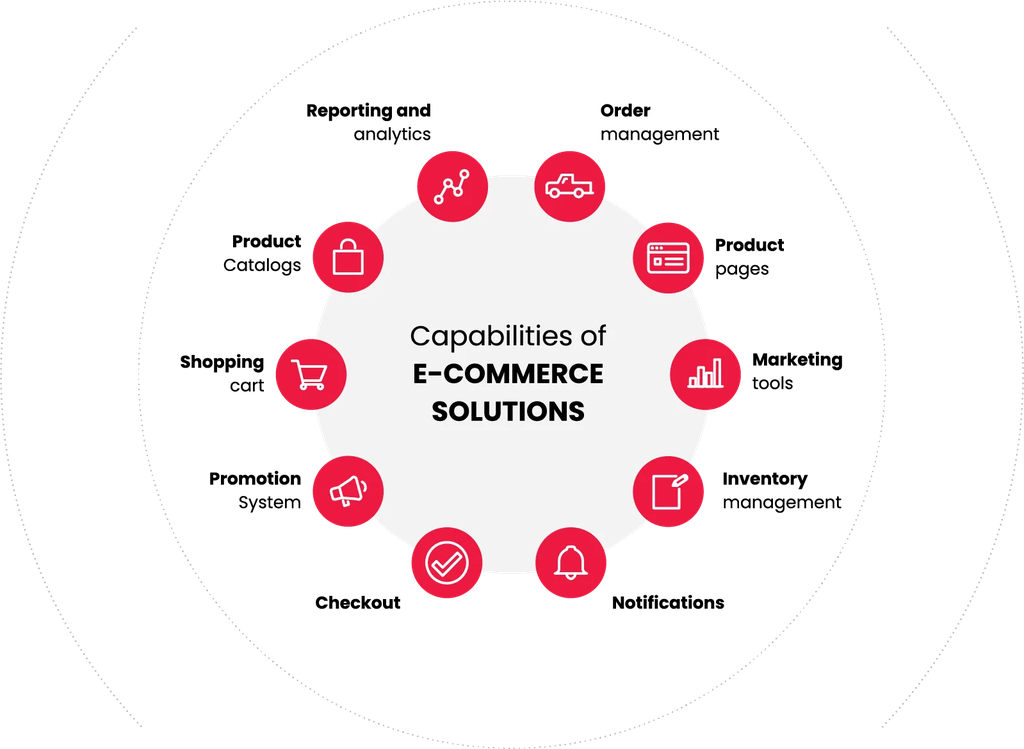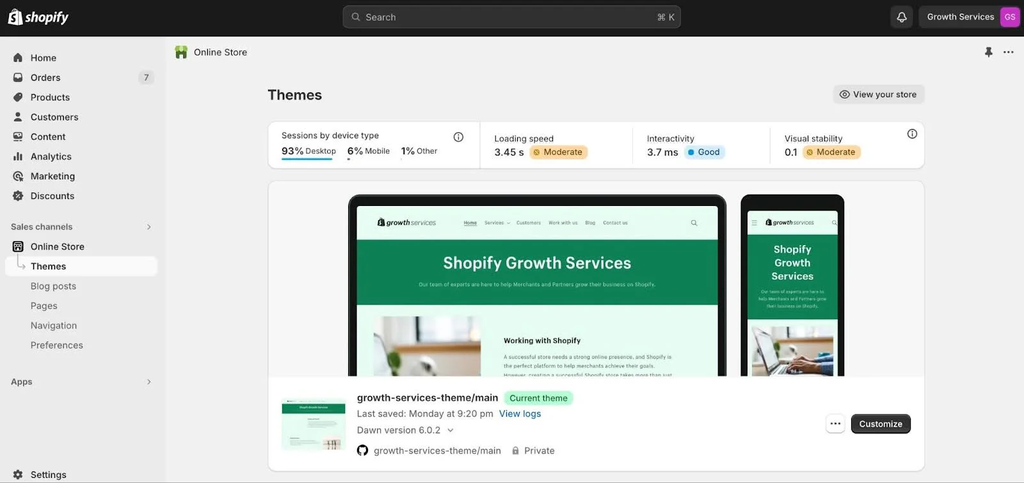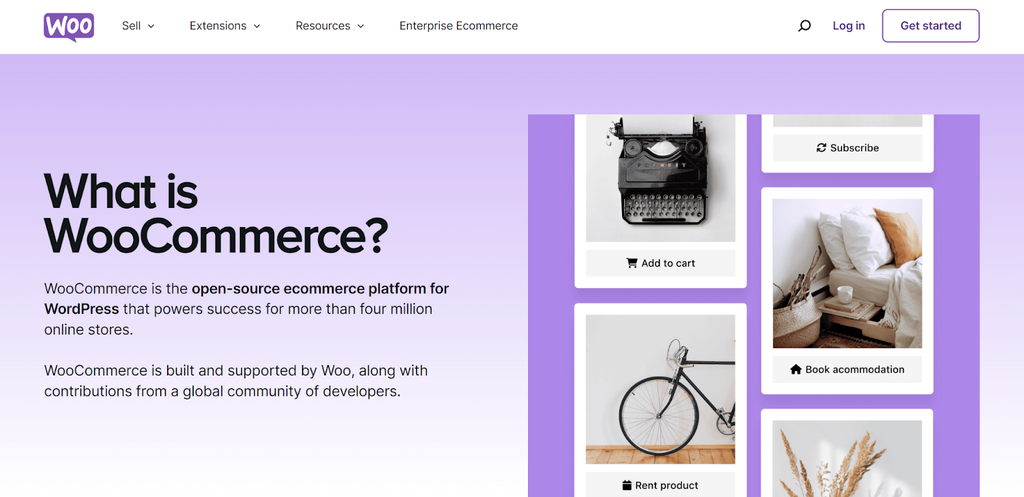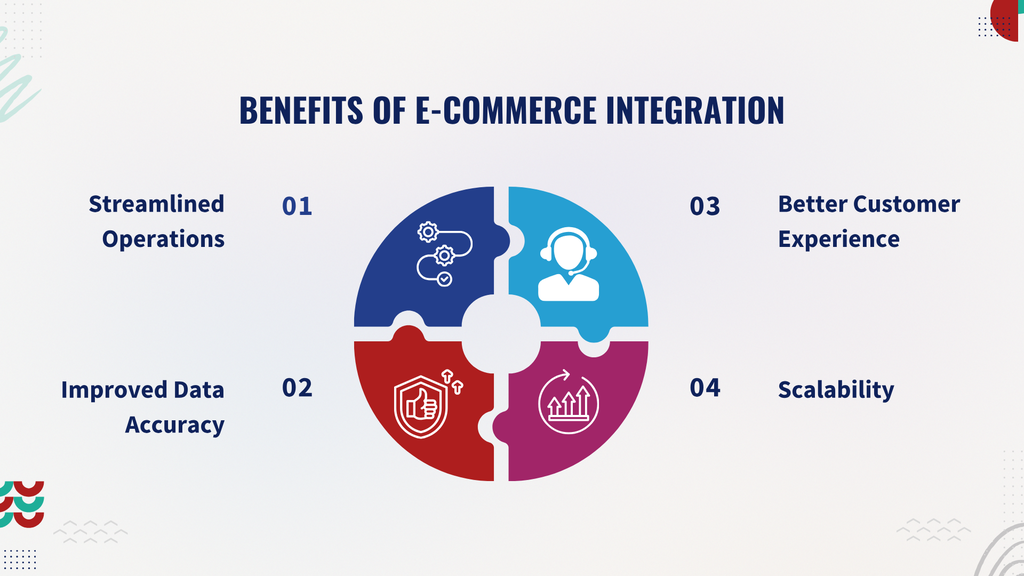Which E-Commerce Platform Will Be Right For Your Business?
A comprehensive guide to build the right e-commerce platform that will help you make the most informed and confident choice for your business.

What is E-Commerce?
An e-commerce platform is the content management system (CMS) and commerce engine websites use to manage catalogued products, register purchases and manage a users relationship with an online retailer.
Today, it no longer matters whether a business is big or small, sells to other businesses (B2B) or directly to consumers (B2C), or offers physical goods or digital services. Customers now prefer to browse, compare, and purchase online, so brands must show up where their audience is. Having an e-commerce platform allows companies to meet their customers at the right time and place, ultimately boosting sales and supporting business growth.

Choosing the Right E-commerce Platform for Your Business Type and Size
When choosing an e-commerce platform, it’s essential to consider your business model and long-term goals. A small entrepreneur selling a few hundred physical products will require different features than a large company offering software or digital services. Your platform choice should be shaped by what you sell and how you operate.
Physical vs. Digital Goods: Selling physical items like apparel or décor requires strong inventory tracking, stock updates, and shipping tools. But if your business sells digital products like online courses or software subscriptions then your priority shifts to content delivery, licensing, and subscription management. Choose the platform that best supports your product type.
B2B vs. B2C: B2B sales usually involve multiple decision-makers, customized pricing, and complex order workflows. A suitable B2B platform should offer flexible pricing controls, bulk ordering, and an easy ordering portal. B2C platforms, however, focus on smooth user experience, fast checkout, and marketing features that encourage impulse buying.
Industry-Specific Needs: E-commerce isn’t limited to retail only. Industries like healthcare, education, and finance also depend on digital platforms. Some sectors require strict compliance and data security, so selecting a platform that meets regulatory standards is crucial for trust and legal protection.
Business Size and Budget: A small business or solo entrepreneur may only need a simple online storefront to showcase products and accept payments but should still consider future scalability for sudden growth or viral demand. Larger companies typically need advanced tools like multi-channel selling, deeper automation, integrations, and powerful inventory systems to manage large catalogs and high order volumes.
By understanding your business type, size, and industry needs, you can choose an e-commerce platform that fits your current goals while supporting long-term growth. This clarity ensures a smoother journey toward building a successful online business.
Best Ecommerce Platforms for Your Business
1. Shopify
Shopify is the world's leading e-commerce platform. With affordable plans, beautiful designs, and powerful selling features, Shopify is the easiest, most reliable way to start an online store.
You can customize your store with more than 8,000 plug-ins and extensions and process payments without needing other services. Shopify also takes care of website hosting and security for you.

E-commerce features - Shopify's user-friendly store builder offers more than 100 no-code, mobile-friendly themes. Optimize unlimited product listings with the editor's built-in AI assistant, which helps generate store designs and product descriptions, and manage site content. As your business grows, enhance your website's functionality with third-party apps or develop a completely custom online storefront.
Shopify supports selling through your website, directly on social media and marketplaces, wholesale to other retailers, and in-person with Shopify POS. Features like abandoned cart recovery and targeted email campaigns help capture more sales, while tools for international selling make cross-border e-commerce simple.
2. BigCommerce
BigCommerce offers web hosting and customization options for your e-commerce store, as well as tools for international selling, SEO, and listing products on marketplaces. BigCommerce includes premium features at lower price points, integrates with over 65 payment providers and supports more than 140 currencies, and provides phone and live chat support on all plans.
On the other hand, BigCommerce has a less intuitive setup process, limited website design customization, automatic revenue-based plan upgrades when sales exceed thresholds, and there are only 12 free themes available. BigCommerce caters to enterprise-level companies with features that support large-scale retail. However, it's important to note that some users find the platform less flexible and user-friendly compared to others.
E-commerce features : BigCommerce integrates with sales channels like Google Shopping, Facebook, price comparison engines, Amazon, and Etsy. The mobile app allows you to view analytics and manage inventory on the go, although some features are Android-only. There is also no native POS system.
The need for an easy, flexible interface was a major factor in clothing brand Grace & Lace's decision to migrate from BigCommerce. It moved to Shopify to take advantage of the platform's seller-centric ecosystem.
3. WooCommerce
WooCommerce is a free, open-source WordPress plug-in that transforms any WordPress site into an online store. It offers customizable design options and basic e-commerce features out of the box, supported by a large community. However, since it relies heavily on plug-ins, extensions, and separate hosting, costs can quickly add up, and customer support remains limited. Still, for those already using a blog-focused WordPress site, WooCommerce provides an easy way to add product listings, a shopping cart, and full checkout functionality.
E-commerce features: WooCommerce supports integrated sales channels and payment providers, though these integrations can be somewhat disjointed. The mobile app allows you to add products, manage orders, and view analytics. WooCommerce also offers a native POS system.

With additional paid extensions, you can use WooCommerce to create a more advanced e-commerce website, including customizable themes, shipping, security, and other standard features. Both native and third-party WooCommerce extensions are available. However, it can be hard to keep track of how much you're paying and that's on top of the cost of hosting and maintaining your WordPress website.
While WooCommerce offers flexibility and a low entry barrier, the hidden complexity quickly adds up. Multiple plug-ins, scattered integrations, frequent updates, compatibility issues, hosting responsibilities, and limited customer support can make it hard for business owners to manage a WooCommerce store on their own. These challenges also increase long-term costs and can affect performance, security, and user experience. This is why working with experienced professionals becomes invaluable. Experts can handle hosting, optimize security, manage all required integrations, and maintain a modern, fast, and user-friendly e-commerce website. This ensures you get the full power of WooCommerce without the operational headaches.
Main Features of an E-commerce Platform
A great e-commerce experience depends on a set of core features that make shopping smooth and enjoyable. When you visit your favourite brand’s website, the ease of searching, filtering, viewing products, and checking out is no accident; it's the result of a well-built e-commerce platform. Below are the essential features that define an effective online commerce system.
Storefront Technology
Your storefront is the first impression for shoppers. A good platform provides clean, customizable templates, easy navigation, clear product displays, fast checkout, and mobile-friendly design — all of which help turn visitors into buyers.
Content Management Tools
E-commerce changes quickly, so your website must be easy to update. Strong content management tools allow you to edit product descriptions, photos, videos, and banners whenever needed. These tools help you highlight key features, tailor your brand message, and keep your store fresh and relevant.
Customer Acquisition & Loyalty Tools
A strong platform supports your marketing efforts with features like unified customer profiles, social media integrations, personalized recommendations, and loyalty tools. These help you attract new shoppers while keeping existing ones engaged.
Data & Analytics
Understanding your customers is crucial. E-commerce platforms should offer insights into traffic, sales, search behaviour, and order history. These analytics help you refine marketing efforts, improve product offerings, and create better shopping experiences.
Shipping & Fulfillment Options
The customer journey continues after checkout. Look for platforms that offer inventory tracking, order routing, integration with shipping carriers, and easy returns management. These tools ensure faster delivery and smoother fulfillment.
Privacy & Security
Trust is essential in online shopping. Your platform must include secure payment gateways, SSL certificates, fraud protection, and strong data-security measures. These elements protect customer information and build confidence.
Integration With Backend Systems
Your e-commerce platform should work seamlessly with payment processors, CRM tools, ERP systems, customer service platforms, and more. Smooth integration reduces manual work, improves efficiency, and ensures a unified customer experience.
These features form the foundation of a strong e-commerce platform, helping businesses deliver better shopping experiences, streamline operations, and support long-term growth.

Make Your Business Unstoppable with ERP–E-commerce Integration
Integrating your e-commerce platform with an ERP turns scattered systems into a single, real-time operational engine and that’s where competitive advantage lives. With one synchronized source of truth for orders, inventory, pricing, and customer data, you eliminate manual entry, cut errors, and speed order-to-fulfillment cycles improvements that leaders like Forrester and Aberdeen link to big operational gains and lower costs.
Practical business benefits owners will notice fast: real-time inventory prevents oversells and lost sales; automated order routing and fulfillment shrink cycle times and boost customer satisfaction; unified finance and reporting accelerate monthly closes and improve cash-flow visibility. These efficiencies free staff from firefighting so you can reallocate headcount to growth initiatives.
On the revenue side, ERP integration enables personalized B2B/B2C experiences (custom pricing, order histories, quick reorders) and supports omnichannel selling — both proven to increase lifetime value and repeat purchases. Research and vendor case studies show integrated setups often deliver double-digit improvements in order accuracy, fulfillment speed, and overall revenue uplift.
Finally, modern ERPs bring analytics, automation, and AI-ready data that turn operational signals into strategic moves: smarter inventory forecasting, dynamic pricing, and targeted promotions. The result is predictable operations, happier customers, and a business that scales unstoppably.
From hosting to integrations to usability, we handle everything end-to-end. Let's build your E-commerce store that is secure and fast. Contact us today.